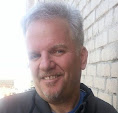Wave of political change in Latin America
A look at Latin American leftist leaders
A presidential victory by Daniel Ortega in Nicaragua would add to the growing number of left-of-center governments across Latin America, though only a few have hostile relations with Washington. Other left-leaning leaders include:
-CUBA: Fidel Castro is the leftist pole star in Latin America. The only avowed communist leader in the hemisphere, he has been an antagonist of the United States since shortly after taking power in 1959. Now ailing, he has temporarily turned over power to his brother, Vice President Raul Castro, with little change of policy apparent.
-VENEZUELA: Hugo Chavez is Castro's heir apparent as Washington's chief regional foe, aided by personal charisma and his nation's vast oil wealth. Chavez has cultivated hostile relations with the U.S. government and friendship with U.S. rivals such as Iran. He promotes socialism, but so far has avoided Castro-style shutdowns of the independent press, opposition parties or private business.
-BOLIVIA: Evo Morales, a socialist, former coca-grower and the first Indian president of his Indian-majority nation, has repeatedly expressed skepticism of U.S. motives, clashed with Washington on issues of drug policy and forged close ties with Castro and Chavez. But he expresses less hostility to the U.S. government than either of them.
-BRAZIL: Luiz Inacio Lula da Silva, a former labor leader who won re-election to a four-year term on Oct. 29, has pleased business leaders by veering toward the center on fiscal policy while expanding subsidies that have helped lift millions from poverty. He maintains generally good relations with both Castro and the United States.
-ARGENTINA: Nestor Kirchner, a center-left politician from a remote province in Patagonia, has leaned on Chavez for economic financing and sought closer ties with Latin American neighbors while avoiding Venezuela's fiery confrontations with Washington.
-CHILE: Michelle Bachelet, a physician and former political prisoner, took office in March as the country's second consecutive Socialist Party president. She calls for expanding social programs, but favors Chile's free-trade pact with the United States.
-URUGUAY: Tabare Vazquez took office in March 2005 as the country's first leftist leader. A physician and former mayor of Montevideo, Vazquez has promised to maintain orthodox economic policies while focusing on helping the poor.
A presidential victory by Daniel Ortega in Nicaragua would add to the growing number of left-of-center governments across Latin America, though only a few have hostile relations with Washington. Other left-leaning leaders include:
-CUBA: Fidel Castro is the leftist pole star in Latin America. The only avowed communist leader in the hemisphere, he has been an antagonist of the United States since shortly after taking power in 1959. Now ailing, he has temporarily turned over power to his brother, Vice President Raul Castro, with little change of policy apparent.
-VENEZUELA: Hugo Chavez is Castro's heir apparent as Washington's chief regional foe, aided by personal charisma and his nation's vast oil wealth. Chavez has cultivated hostile relations with the U.S. government and friendship with U.S. rivals such as Iran. He promotes socialism, but so far has avoided Castro-style shutdowns of the independent press, opposition parties or private business.
-BOLIVIA: Evo Morales, a socialist, former coca-grower and the first Indian president of his Indian-majority nation, has repeatedly expressed skepticism of U.S. motives, clashed with Washington on issues of drug policy and forged close ties with Castro and Chavez. But he expresses less hostility to the U.S. government than either of them.
-BRAZIL: Luiz Inacio Lula da Silva, a former labor leader who won re-election to a four-year term on Oct. 29, has pleased business leaders by veering toward the center on fiscal policy while expanding subsidies that have helped lift millions from poverty. He maintains generally good relations with both Castro and the United States.
-ARGENTINA: Nestor Kirchner, a center-left politician from a remote province in Patagonia, has leaned on Chavez for economic financing and sought closer ties with Latin American neighbors while avoiding Venezuela's fiery confrontations with Washington.
-CHILE: Michelle Bachelet, a physician and former political prisoner, took office in March as the country's second consecutive Socialist Party president. She calls for expanding social programs, but favors Chile's free-trade pact with the United States.
-URUGUAY: Tabare Vazquez took office in March 2005 as the country's first leftist leader. A physician and former mayor of Montevideo, Vazquez has promised to maintain orthodox economic policies while focusing on helping the poor.


Comments